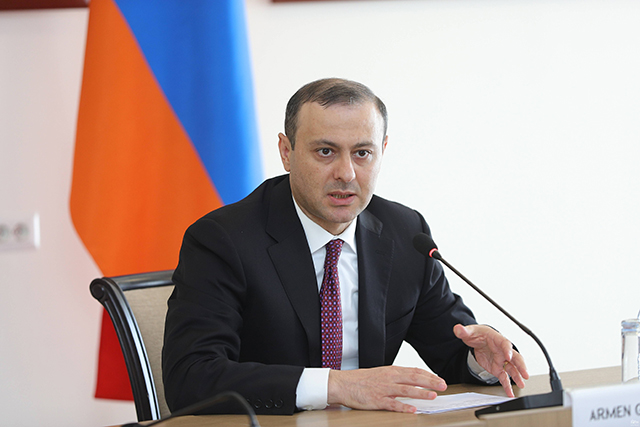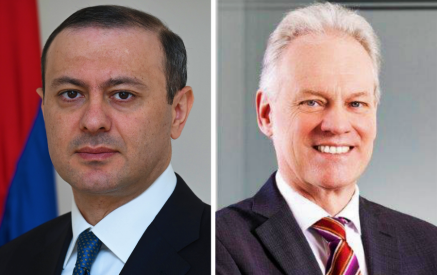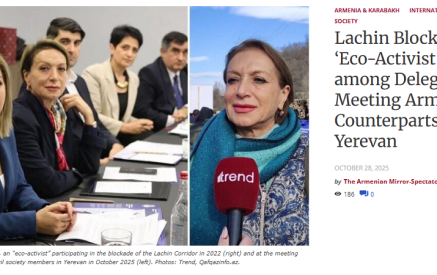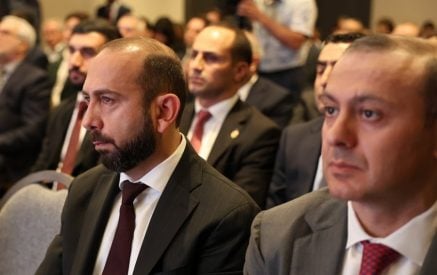Statement by acting Minister of Foreign Affairs Armen Grigoryan at the High Level Political Forum on Sustainable Development under the auspices of the ECOSOC
Mr President,
It is an honour to address the Ministerial Segment of the High-Level Political Forum as we celebrate the 75th Anniversary of the ECOSOC. This is a remarkable milestone for the Council, which has been at the forefront of global development agenda throughout its existence and similarly has been instrumental in devising the Sustainable Development Goals.
The past year has not been forgiving for our joint efforts aimed at realizing the 2030 Agenda. The continuing COVID-19 pandemic has caused millions of deaths, crippled world economy and overstrained the healthcare systems throughout the globe.
Read also
A number of SDG areas took a colossal hit and would require redoubled efforts to register the foreseen outcomes by 2030.
The pandemic also illustrated vividly the scale of inequalities between states and particularly in terms of vaccine distribution. We favour a reinforced support to COVAX initiative to allow for low and middle-income countries to receive proportionate amounts of COVID vaccines. Without global efforts it would prove impossible to fully contain this pandemic and to return to normality.
It is also critical to take urgent steps on the global level to secure vaccines for the people living in conflict zones, in the spirit of our collective pledge of “Leaving no one behind”.
COVID-19 pandemic was not the only challenge that our region had to face in the past year. Despite Secretary-General’s appeal for a global ceasefire amid the pandemic and the subsequent Resolution 2532 of the UN Security Council, last autumn Azerbaijan with direct support and involvement of Turkey and foreign terrorist fighters from Syria and Libya launched a large-scale aggression against Nagorno-Karabakh, resulting in thousands of casualties, tens of thousands of injured, displaced, causing loss of livelihood and collapsed infrastructures. A number of regions of Nagorno-Karabakh which were seized as a result of use of force, were ethnically cleansed and their population was a subject to war crimes and mass atrocities.
Azerbaijan used force to suppress the right to self-determination of the people of Artsakh in a violation of the UN Charter, which among others clearly stipulates that all international disputes must be settled by peaceful means.
Throughout the 44 days of the offensive Azerbaijani army committed flagrant violations of international law, including international human rights law and international humanitarian law, deliberately and systematically targeting civilian infrastructures, particularly schools, hospitals, maternity wards, communication systems, as well as vandalizing and destroying the Armenian cultural and religious heritage. Up to this day, Azerbaijan continues its transgressions, refusing to return the Armenian prisoners of war that it still holds in captivity, making territorial claims and attempting a seizure of sovereign territories of the Republic of Armenia and blocking the entry of international humanitarian efforts to Artsakh.
These provocations must be met with the proper reaction of the international community. The access of humanitarian missions, and especially those of the United Nations to Nagorno-Karabakh must be granted swiftly and unconditionally.
More international efforts are needed to reinvigorate the format of the OSCE Minsk Group Co-Chairs and to continue deliberations on a lasting political solution to the Nagorno-Karabakh conflict.
Mr President,
At last year’s High Level Political Forum Armenia presented its Second Voluntary National Review. Despite the hardships caused by the pandemic, the Government of Armenia continued to take steps towards the realization of the 2030 Agenda.
As part of celebrations of the 29th Anniversary of Armenia’s Independence in September 2020, the Government introduced the Armenia Transformation Strategy 2050, built around 16 mega-goals of long-term socio-economic, educational and human development objectives for the next 30-year period. The goals of the Armenia Transformation Strategy are closely linked with those of the Sustainable Development Agenda, effectively synchronizing SDGs with Armenia’s national priorities and reform agenda.
Armenia intends to submit its Third Voluntary National Review next year, believing that the VNRs are an effective tool for sharing best practices, exchanging ideas and identifying both the achievements and the shortcomings of our collective efforts towards achieving the Sustainable Development Goals.
I would also like to take the opportunity to highlight the free, fair and democratic early parliamentary elections that took place in Armenia this June. The population of Armenia gave a strong mandate to the Government to continue with its reform agenda, to strengthen the rule of law and democracy for the benefit of its people.
The Government of Armenia is evermore committed to the SDGs and is eager to work closely together with our UN partners to further our progress to this end.
Thank you.

























































